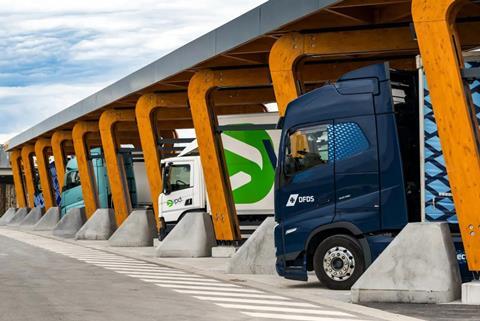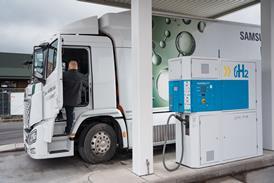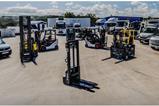Milence has inaugurated Europe’s largest public charging hubs for electric heavy-duty vehicles at the Port of Antwerp-Bruges, Belgium. The port, handling 289 million tonnes of cargo annually, is a significant global trade hub and a key location for Milence’s network.

The Charging hub, featuring 20 charging bays, is strategically situated along the Rhine-Alpine Ten-T (Trans-European Transport Network) corridor, one of Europe’s busiest freight routes. It is the first in Europe to incorporate the full Milence design concept aimed at enhancing the customer experience.
Anja van Niersen, CEO of Milence, highlighted the strategic importance of this hub in the Milence network, emphasising its role in facilitating sustainable transport of goods across Europe. Jacques Vandermeiren, CEO of Port of Antwerp-Bruges, noted the necessity of such infrastructure in the electrification of road transport, aligning with the port’s renewable energy initiatives.
The hub at truck parking Ketenis includes 10 Combined Charging System (CCS) chargers, providing up to 400kW of power per bay. A second hub at truck parking Goordijk in Belgium, with five CCS chargers, is planned to open later this year. Both hubs are set to transition to Megawatt Charging System (MCS) technology once available.
Milence has signed agreements with several major e-Mobility Service Providers (eMSPs) in Europe to ensure the accessibility of their charging network. They have also developed a user-friendly app for locating chargers and processing payments, with direct payment options available at terminals. The charging tariff is EUR 0.4 per kWh (34p), excluding VAT and transaction costs, applicable at all Milence hubs.
The new hub offers various amenities to ensure a comfortable stop for truck drivers, including secure, fenced parking areas with access control, lighting, camera surveillance, Wi-Fi, and sanitary facilities. Additionally, vending machines provide snacks and drinks.
The hubs at Ketenis and Goordijk are part of the green corridor initiative between the ports of Antwerp and Bruges, supporting the use of electric heavy-duty vehicles. The Port of Antwerp-Bruges aims to become Carbon neutral by 2050, with significant renewable energy production from solar panels and wind turbines.


















